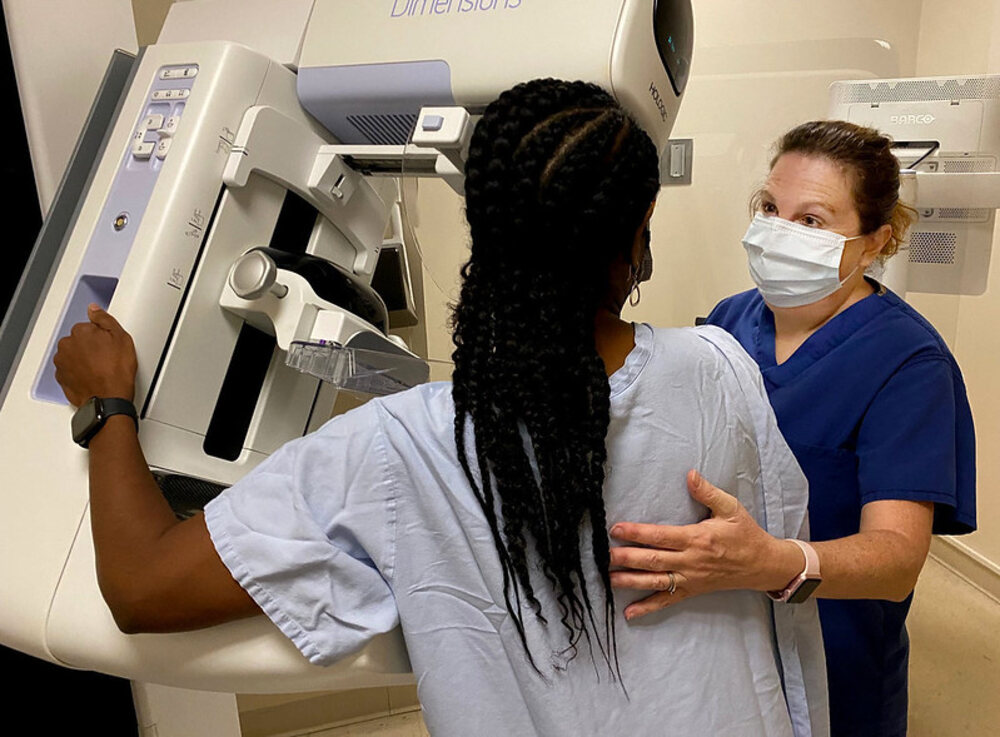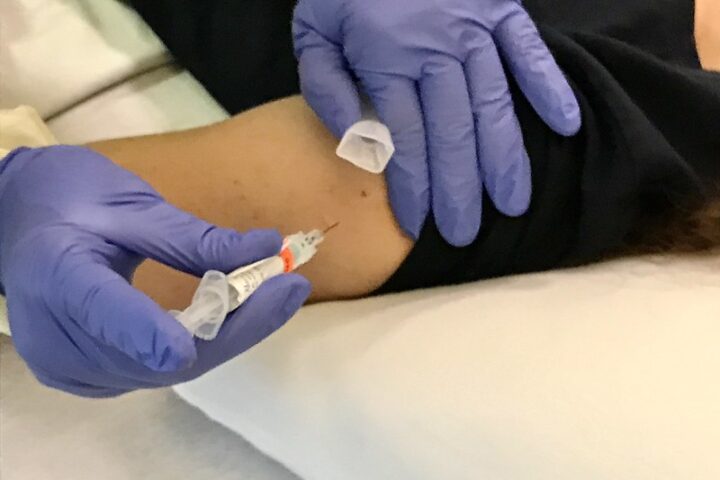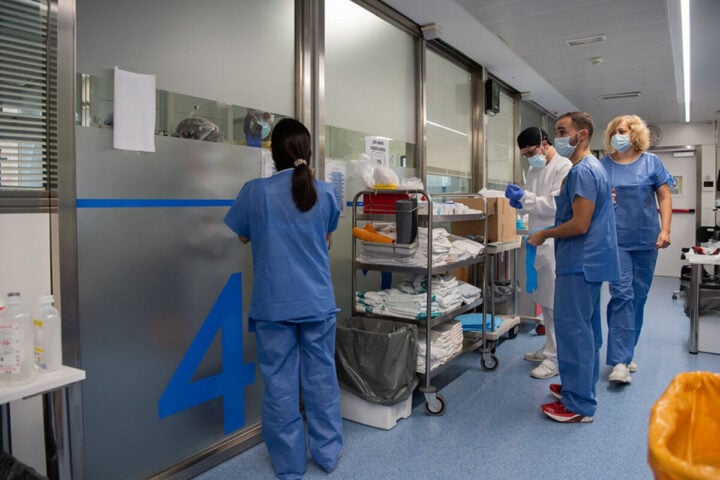A new breast cancer pill that can slow the progression of advanced disease has been approved for use on the NHS in England and Wales, offering new hope to thousands of women.
The twice-daily tablet, capivasertib (also marketed as Truqap), targets the most common form of advanced breast cancer and could benefit around 3,000 women each year. The approval follows clinical trials showing it significantly delays disease progression when compared to existing treatments alone.
How the drug works
Unlike many existing treatments, capivasertib works by blocking a protein called AKT that drives cancer cell growth. This targeted approach helps slow or stop the spread of breast cancer cells.
The drug is specifically designed for women with hormone receptor-positive, HER2-negative breast cancer that has specific genetic alterations in the PIK3CA, AKT1, or PTEN genes. These genetic changes are found in approximately half of patients with this type of breast cancer.
“It presents a very effective option that can work for a long time – many months, and in some people it can be years,” said Professor Nick Turner, who led research on the drug at the Institute of Cancer Research and The Royal Marsden.
Real benefits for patients
In clinical trials, capivasertib combined with the hormone therapy fulvestrant extended the time before cancer worsened from 3.1 months to 7.3 months – an extra 4.2 months on average. The drug also shrank tumors in about a quarter of patients.
For Linda Kelly, 67, the drug has provided remarkable results. “It does let you have a normal kind of life and you forget you have cancer,” she said. “It’s given me nearly four years of extra time.”
Linda remains active, cycling 60 miles weekly and practicing pilates, despite her cancer having spread to her bones and chest wall. “You feel the drug is working and you can be a lot calmer,” she added.
The treatment offers patients valuable extra time with fewer side effects than chemotherapy, allowing them to maintain better quality of life.
Similar Posts:
A British science success story
The approval marks what experts call a “landmark moment” in breast cancer treatment. The drug’s development began 20 years ago at the Institute of Cancer Research in London, making it a notable British scientific achievement.
Professor Paul Workman, former chief executive of the Institute of Cancer Research and researcher in the AKT drug discovery project, expressed his satisfaction: “I am delighted to celebrate this landmark moment. It’s immensely gratifying that years of collaboration have contributed to this new cancer drug.”
Testing is crucial
Eligible patients must undergo genetic testing to determine if their cancer has the specific mutations that capivasertib targets. This testing is vital for identifying who will benefit most from the treatment.
“NHS England must now put in place prompt genetic testing to ensure those eligible receive capivasertib without further delay,” said Claire Rowney, Chief Executive of Breast Cancer Now.
NHS perspective
Professor Peter Johnson, National Clinical Director for Cancer at NHS England, emphasized the importance of this addition to cancer treatments: “This new combination treatment offers an additional option for some people whose breast cancer has progressed despite previous hormone therapy.”
He added that while it won’t be suitable for everyone, “giving patients more time before more intensive therapies are required is an important part of our drive to personalize cancer care and improve quality of life for patients wherever possible.”
Initial delays in approval
The path to NHS approval wasn’t without hurdles. Breast Cancer Now noted that patients faced “unnecessary delays” after an initial rejection by the National Institute for Health and Care Excellence (NICE).
“This happens too often and urgent action must be taken to ensure the quick approval of breast cancer drugs so they can be made available promptly to those who need them,” Rowney stated.
Helen Knight, director of medicines evaluation at NICE, acknowledged the “devastating impact that being diagnosed with advanced breast cancer has on people’s lives” and expressed satisfaction that they were able to recommend the treatment as “a good use of NHS resources.”

The Scottish Medicines Consortium is now being urged to also consider the treatment quickly to ensure access for patients across the UK.
For women living with advanced breast cancer, this new treatment option provides not just extended time, but also the possibility of better quality of life during that time—allowing them, like Linda Kelly, to make plans for the future with greater confidence.
Frequently Asked Questions
Capivasertib (also marketed as Truqap) is a twice-daily pill that treats hormone receptor-positive, HER2-negative advanced breast cancer. It specifically targets cancers with genetic alterations in the PIK3CA, AKT1, or PTEN genes, which occur in about half of patients with this type of breast cancer. The drug works by blocking a protein called AKT that drives cancer cell growth.
In clinical trials, capivasertib combined with the hormone therapy fulvestrant extended the time before cancer worsened from 3.1 months to 7.3 months – an extra 4.2 months on average. The drug also shrank tumors in about a quarter of patients. Some patients like Linda Kelly have reported benefits lasting several years, though individual results vary.
You may be eligible if you have hormone receptor-positive, HER2-negative advanced breast cancer that has progressed after previous hormone therapy. You’ll need genetic testing to determine if your cancer has the specific mutations in PIK3CA, AKT1, or PTEN genes that the drug targets. Discuss with your oncologist about getting tested to see if this treatment is appropriate for your specific situation.
While side effects weren’t extensively detailed in the source material, capivasertib generally has fewer debilitating side effects compared to chemotherapy. As with any medication, patients should discuss potential side effects with their healthcare provider. The drug’s targeted approach means it may offer a better quality of life for many patients while fighting their cancer.
Capivasertib has been approved for NHS use in England and Wales. According to Breast Cancer Now, the Scottish Medicines Consortium is being urged to “consider this treatment at pace” to ensure it’s available across the entire UK. Availability may vary by region until full UK-wide approval is secured.
Capivasertib can delay the need for more intensive therapies like chemotherapy, which often has more severe side effects. Patient Linda Kelly described being able to maintain an active lifestyle (cycling 60 miles weekly and practicing pilates) despite her cancer having spread. The treatment allows many patients to maintain a more normal life while fighting advanced cancer, with some reporting they “forget you have cancer” during treatment.


















